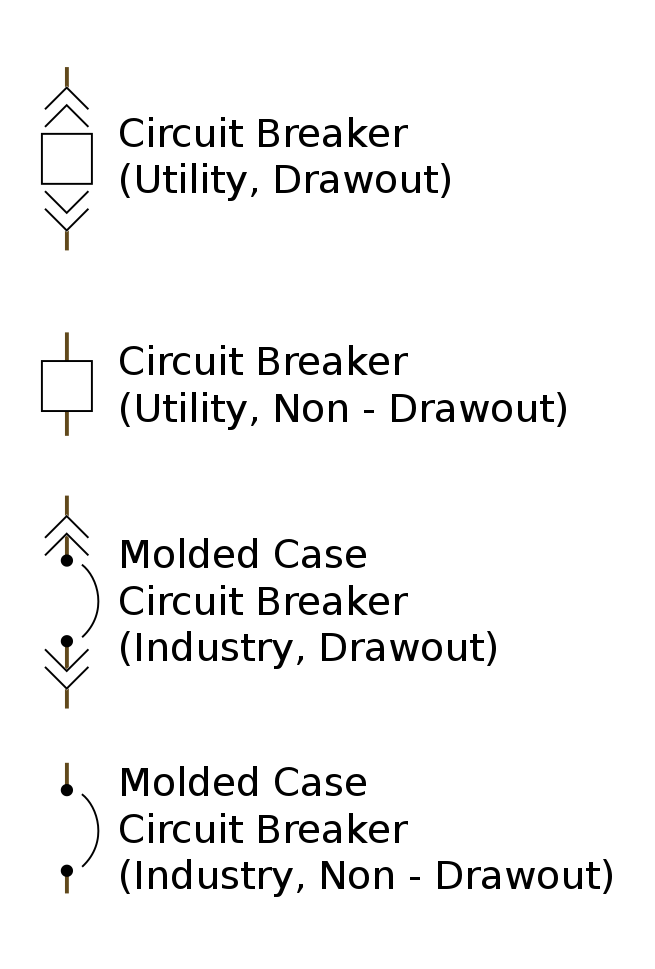
Main Difference
The main difference between Relay and Circuit Breaker is that the Relay is a electrically operated switch and Circuit Breaker is a automatically operated electrical switch designed to protect an electrical circuit from damage caused by excess current from an overload or short circuit
-
Relay
A relay is an electrically operated switch. Many relays use an electromagnet to mechanically operate a switch, but other operating principles are also used, such as solid-state relays. Relays are used where it is necessary to control a circuit by a separate low-power signal, or where several circuits must be controlled by one signal. The first relays were used in long distance telegraph circuits as amplifiers: they repeated the signal coming in from one circuit and re-transmitted it on another circuit. Relays were used extensively in telephone exchanges and early computers to perform logical operations.
A type of relay that can handle the high power required to directly control an electric motor or other loads is called a contactor. Solid-state relays control power circuits with no moving parts, instead using a semiconductor device to perform switching. Relays with calibrated operating characteristics and sometimes multiple operating coils are used to protect electrical circuits from overload or faults; in modern electric power systems these functions are performed by digital instruments still called “protective relays”.
Magnetic latching relays require one pulse of coil power to move their contacts in one direction, and another, redirected pulse to move them back. Repeated pulses from the same input have no effect. Magnetic latching relays are useful in applications where interrupted power should not affect the circuits that the relay is controlling.
Magnetic latching relays can have either single or dual coils. On a single coil device, the relay will operate in one direction when power is applied with one polarity, and will reset when the polarity is reversed. On a dual coil device, when polarized voltage is applied to the reset coil the contacts will transition. AC controlled magnetic latch relays have single coils that employ steering diodes to differentiate between operate and reset commands. It was used in long distance telegraph circuits, repeating the signal coming in from one circuit and re-transmitting it to another.
-
Circuit Breaker
A circuit breaker is an automatically operated electrical switch designed to protect an electrical circuit from damage caused by excess current from an overload or short circuit. Its basic function is to interrupt current flow after a fault is detected. Unlike a fuse, which operates once and then must be replaced, a circuit breaker can be reset (either manually or automatically) to resume normal operation.
Circuit breakers are made in varying sizes, from small devices that protect low-current circuits or individual household appliance, up to large switchgear designed to protect high voltage circuits feeding an entire city. The generic function of a circuit breaker, or fuse, as an automatic means of removing power from a faulty system is often abbreviated as OCPD (Over Current Protection Device).
-
Relay (noun)
A new set of hounds. from 15th c.
-
Relay (noun)
A new set of horses kept along a specific route so that they can replace animals that are tired. from 17th c.
-
Relay (noun)
A new set of anything.
-
Relay (noun)
A series of vehicles travelling in sequence. from 18th c.
-
Relay (noun)
A track and field discipline where runners take turns in carrying a baton from start to finish. Most common events are 4×100 meter and 4×400 meter competitions. from 19th c.
-
Relay (noun)
An electrical actuator that allows a relatively small electrical voltage or current to control a larger voltage or current. from 19th c.
-
Relay (verb)
To release a new set of hounds. 15th-17th c.
-
Relay (verb)
To place (people or horses) in relays, such that one can take over from another. from 18th c.
-
Relay (verb)
To take on a new relay of horses; to change horses. from 19th c.
-
Relay (verb)
To pass on or transfer (information). from 19th c.
“The CCTV cameras relay what’s going on to the headquarters.”
“Can you relay this message to John?”
-
Relay (verb)
alternative spelling of re-lay
